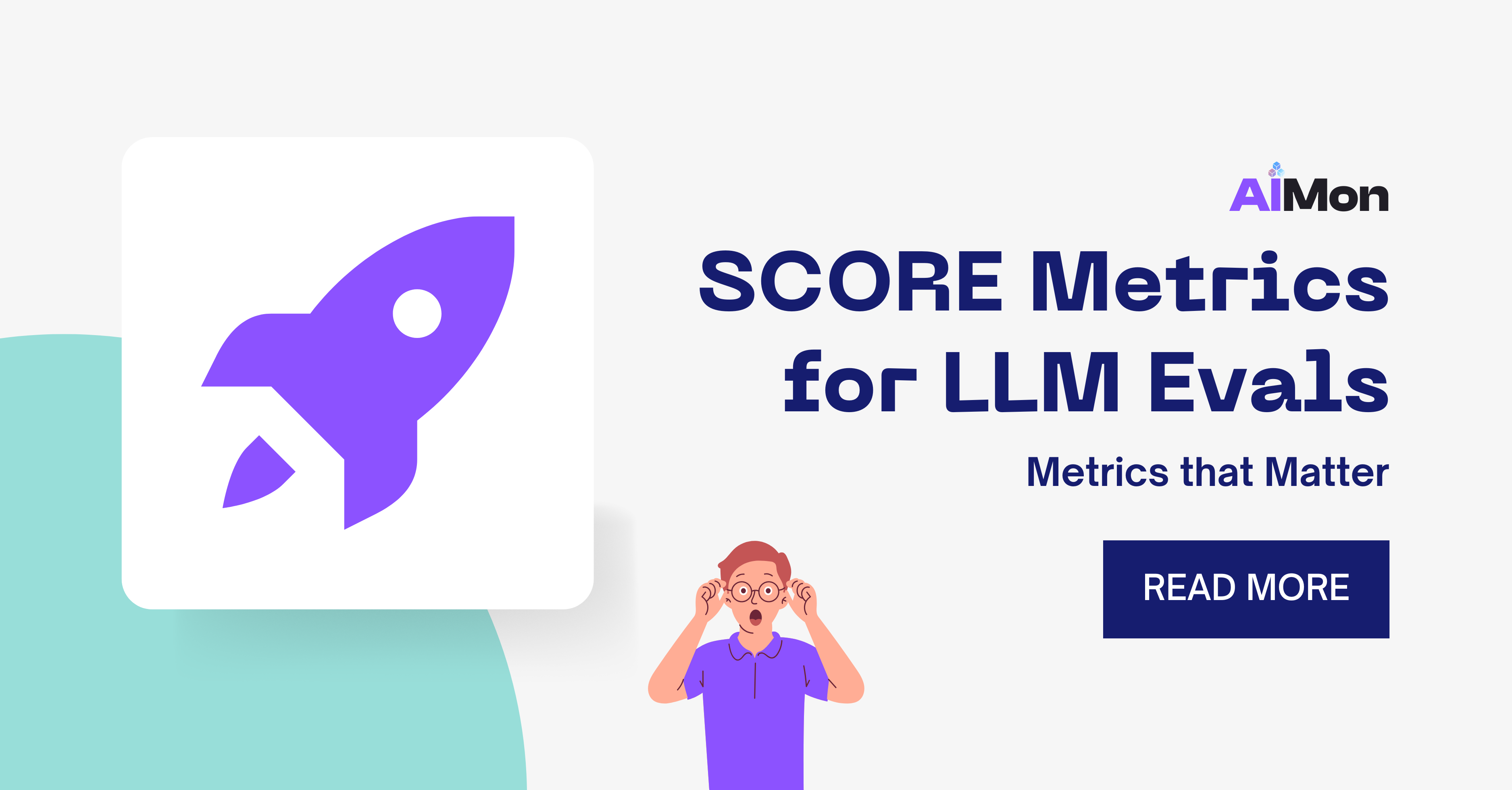Mon Jan 15 / Puneet Anand
The SCORE (Simple, Consistent, Objective, Reliable, Efficient) framework revolutionizes LLM evaluation by addressing critical limitations in current evaluation systems, including LLM dependency, metric subjectivity, and computational costs. It introduces comprehensive quality, safety, and performance metrics that enable organizations to effectively assess their LLM applications while focusing on development rather than evaluation setup.

The landscape of LLM and RAG evaluation is fragmented and inefficient. Organizations are currently grappling with various LLM and RAG evaluation frameworks, yet these solutions often create more problems than they solve. Development teams find themselves mired in metric selection and evaluator stabilization instead of focusing on their core mission: building powerful applications.
The existing evaluation paradigm suffers from fundamental flaws that demand immediate attention:
LLM Dependency Crisis: Current frameworks rely heavily on LLMs, creating a circular dependency that undermines evaluation integrity. Evaluation or Judge LLMs may hallucinate about the same topics that they are evaluating, after all.
Performance Bottlenecks: The significant latency introduced by LLM Judges renders them unsuitable for real-time monitoring and guardrails.
LLMs aren’t trained graders: Off-the-shelf LLMs are trained for generation tasks but not typically for evaluation tasks, which can lead to questionable assessment quality.
Subjectivity: Subjective metrics create inconsistent evaluations
Computational costs: LLMs, especially the largest and best evaluation models like GPT-4o are impractical to deploy for real-time scenarios because of their high cost
Apart from these, different frameworks are inconsist with each other’s concepts and require complex setup that creates unnecessary overhead for developers
We present SCORE - a simple yet revolutionary framework that transforms LLM evaluation. This comprehensive approach embodies five essential principles to use while defining and computing metrics for LLM Evals:
We worked closely with our existing customers, and interviewed 200+ companies to arrive at the “core” metrics that matter.
Our framework establishes rigorous standards for output quality:
| Critical Metric | Description |
|---|---|
| Hallucination Detection | Rigorous fact-checking and hallucination identification for contextual and non-contextual scenarios |
| Output Relevance | Strict alignment between query and response implies that the LLM doesn’t veer off-topic and serve irrelevant information |
| Instruction Adherence | Precise following of prompt instructions which is especially important for agentic workflows |
| Completeness | Comprehensive capture of context document facts which is very applicable for summarization use cases |
| Conciseness | Optimization of response length |
| Custom Metrics | Check if your business objectives were met |
Security and safety are non-negotiable:
| Security Aspect | Description |
|---|---|
| Sensitive Information | Strict monitoring for PII, PCI, and PHI leakage |
| Content Safety | Comprehensive multi-dimensional toxicity detection |
| Brand Protection | Competitor mention monitoring and tone consistency |
| Bias Prevention | Multi-dimensional bias detection |
Ensuring retrieval excellence:
| Metric Category | Description |
|---|---|
| Query-Context Relevance | Precise alignment of retrieval results |
| Data Quality | Checks for conflicting information, poor formatting (often resulting from actions such as PDF parsing) or grammatical issues like missing punctuations. |
Maintaining indexing time data quality:
| Quality Aspect | Description |
|---|---|
| Indexing Quality | Comprehensive coherence and consistency verification |
The SCORE framework represents a decisive step forward in LLM evaluation methodology. By implementing these standards, organizations can overcome the limitations of current evaluation systems and achieve superior results in their LLM applications.
Backed by Bessemer Venture Partners, Tidal Ventures, and other notable angel investors, AIMon is the one platform enterprises need to drive success with AI. We help you build, deploy, and use AI applications with trust and confidence, serving customers including Fortune 200 companies.
Our benchmark-leading ML models support over 20 metrics out of the box and let you build custom metrics using plain English guidelines. With coverage spanning output quality, adversarial robustness, safety, data quality, and business-specific custom metrics, you can apply any metric as a low-latency guardrail, for continuous monitoring, or in offline evaluations.
Finally, we offer tools to help you iteratively improve your AI, including capabilities for real-world evaluation and benchmarking dataset creation, fine-tuning, and reranking.